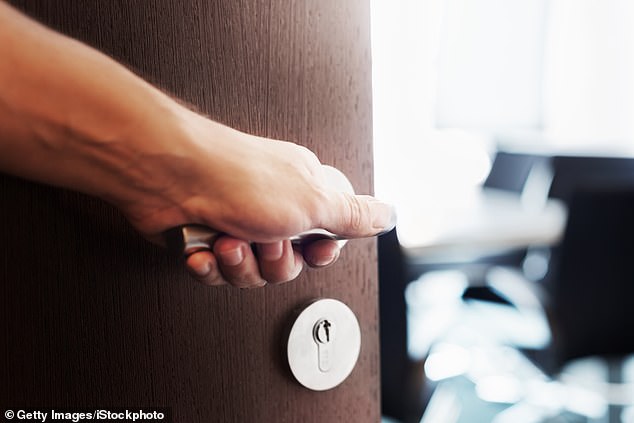As a permanently sleep-deprived mother of two, it’s perhaps not surprising I lose my train of thought on a regular basis, but even before having kids I had experienced that disorienting feeling of walking purposefully into a room and then thinking ‘Why on earth am I here?’
Chances are you have too. In fact, this might even happen to you on a regular basis, leading you to worry that it’s an early indicator of losing your memory. However, the good news is that it’s actually a very common phenomenon; so common that it’s been dubbed ‘The Doorway Effect’. Scientists have researched this particular brain glitch to find out what causes us to forget our intentions as soon as we enter a new room, and come up with interesting results.
The Doorway Effect was first documented by the University of Notre Dame in the Quarterly Journal of Experimental Psychology. The research saw participants carry objects through real and virtual environments, analysing how their memory performed across the various settings.
The study found participants were most likely to forget what they were holding or doing after walking through a doorway, more so than if they travelled exactly the same distance within one room. This coined the term ‘event boundary’, a notion that your brain likes to categorise experiences into episodes. A doorway acts as both a physical and psychological barrier that the brain interprets as the end of one event and the beginning of another. As you cross the doorway (or boundary), your memory drops anything it deems irrelevant.
The loss of visual cues as you move from one space to another also explains why you forget what you’re planning to do. When a person develops an immediate intention, such as charging a phone, the brain connects the task to cues that are visible in its current environment, like a laptop or a desk. As you enter a new room, the brain builds a new mental map of the space, finding anything of relevance. If the original context cues are no longer available, this can hinder the brain from retrieving the goal it set just moments earlier.

The Doorway Effect is a common phenomenon, where we forget things more after crossing a boundary.
‘Although annoying, entering a room and forgetting why indicates that your brain is performing exactly as it should by optimising what it deems relevant in the moment and temporarily ‘deleting’ short-term goals a little earlier than needed,’ says HealthTest.
I’ve definitely experienced the ‘Doorway Effect’ more since becoming a parent, which makes sense because studies have found that those experiencing a high cognitive load are most likely to forget their short-term goals, particularly when switching tasks.
Additionally, research at the University of Pennsylvania’s Department of Neurology revealed that insufficient sleep impacts short-term memory encoding and retrieval, ensuring that the more tired or ‘emotionally busy’ you are, the more likely your brain is to forget its task mid-walk.

A study found participants were most likely to forget what they were holding or doing after walking through a doorway.
Luckily, there are things you can do to help yourself retain those all-important plans as you move from room to room. Saying your intention out loud as you walk might make your family laugh at you, but it will help cement it in your mind. Another tip is to visualise the task as if you’re already doing it when you set your intention, so it’s less likely to drop out of your brain as soon as you leave the room.
Finally, if you’re constantly juggling a long list of tasks (like trying to get yourself and the kids out of the door in the morning), then having visual cues, like a book bag left by the door, or notes stuck around in key places (reminding you to bring the packed lunches etc) can be helpful.












